How a Jewish critic feels about Jojo Rabbit
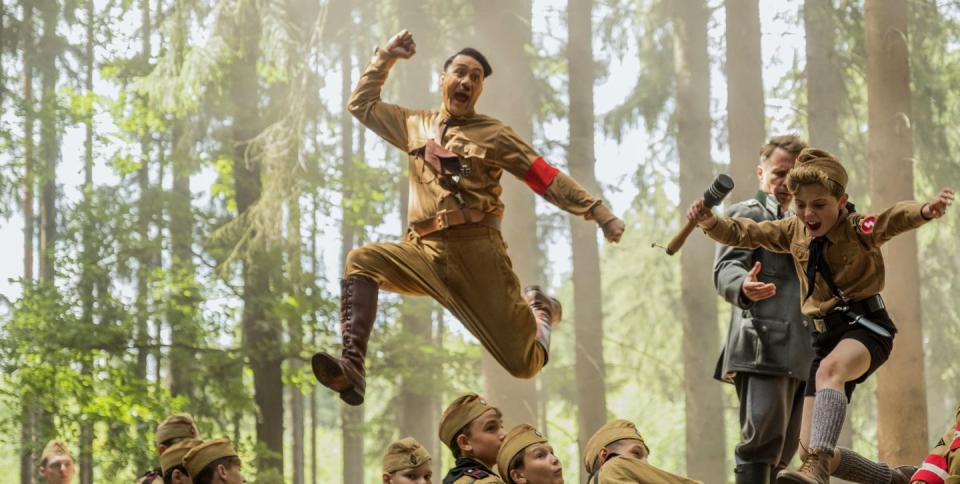
With all the outcry it's provoked, you'd think Jojo Rabbit was the first time Hitler was satirised by the media. But it wasn't, and it won't be the last. Though many have tried, not all succeeded.
Charlie Chaplin's infamous moustache-and-slapstick humour poked fun at the Führer, while the Oscar-winning Life is Beautiful was accused by many of diminishing the suffering of Holocaust victims. Jojo Rabbit is not about the holocaust, exactly. It's about Johannes 'Jojo' Betzler (Roman Griffin Davis), a young Nazi who discovers a Jewish refugee hidden in his house.
Unlike Life is Beautiful, Jojo Rabbit's director, New Zealand native Taika Waititi, has Jewish heritage – his grandfather was a Russian Jew (indeed Waititi sometimes goes professionally by his mother's name, Cohen).
My own grandfather was a German Jew.
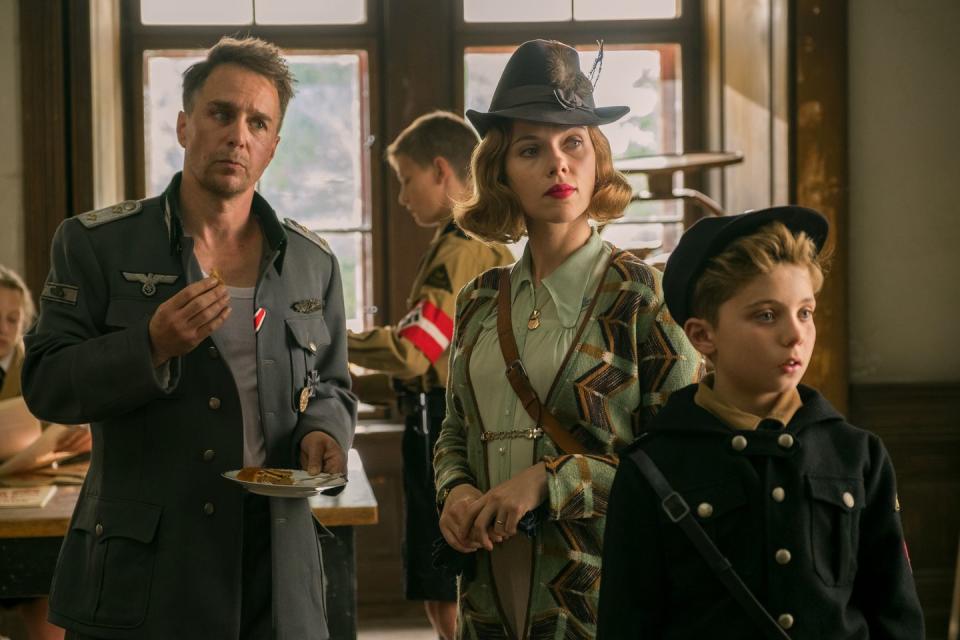
In the United Kingdom, Jews only make up 0.6% of the population: 410,000 Jewish people live here, according to 2018 figures. By these statistics, I estimate that when I saw Jojo Rabbit I was perhaps the only Jew in an audience of about thirty people.
In my hometown of New York City, I'm never the only Jew anywhere (there are 1.5 million Jews in the city alone). It's only since living in London that the full meaning of that identity has come into sharp focus.
So when the opening credits of Jojo Rabbit played over archival footage of wide-eyed Nazis shouting with ecstasy in the streets to the tune of The Beatles' I Wanna Hold Your Hand (in German of course) I felt a bit sick.
This is the same tonal dissonance that haunts Jojo Rabbit over the next one hour and 45 minutes – to sometimes greater and sometimes lesser effect.
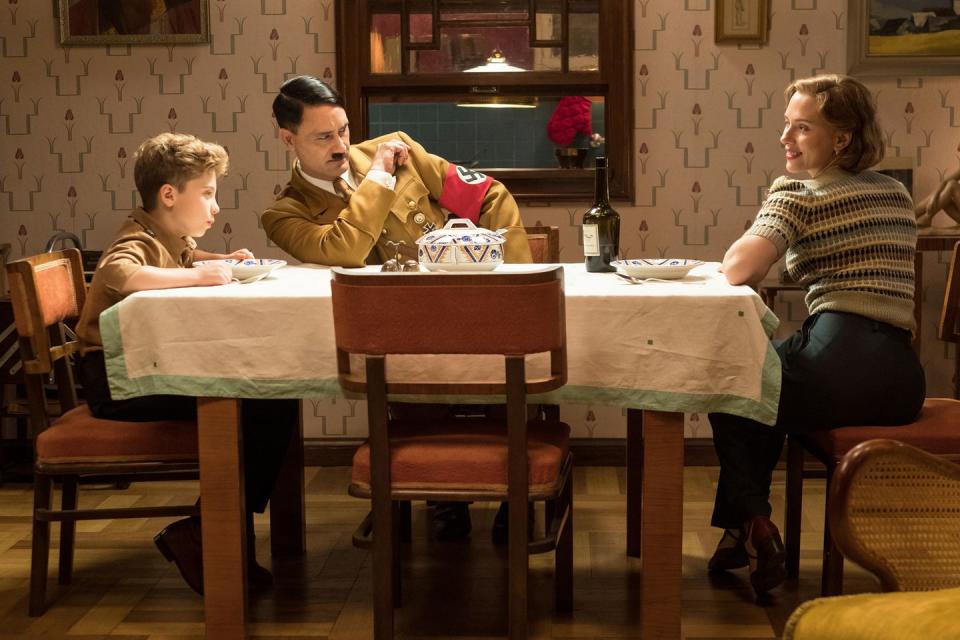
Footage of real Nazi rallies without any of the shouting was uncanny, to say the least, and nauseating. What Waititi wanted to accomplish, he accomplished. You want to sing along, you want to tap your feet to the familiar tune but to do so equates you with the countless people who followed Hitler's final solution and the murder of millions of Jews, LGBTQ+ people, disabled people, Romani and others.
The screen version of Hitler, played by Waititi himself in terrible blue contact lenses as the imaginary friend of young Jojo, is exactly as a ten-year-old might imagine him: petulant and fickle. Not the man who inspired The Beatlemania-like fervour on crowded German streets.
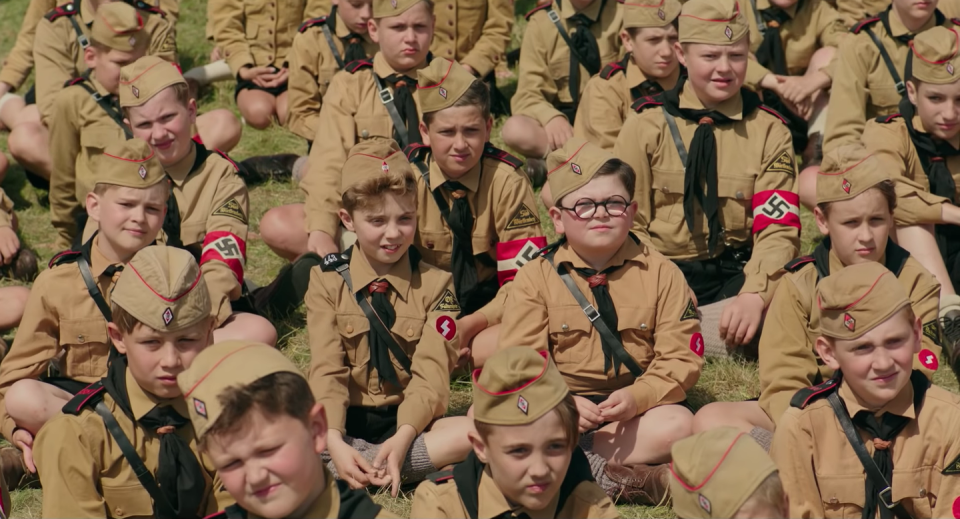
I wondered of those faces on the crowded streets: did they see my family members walking down the street and spit at them? Did they see them as horned devils who sleep upside down like bats and could read each other's minds?
These are the questions Waititi poses through Jojo. Choosing a little boy to present those beliefs was smart. No one else could have elicited empathy from the audience. But because Jojo is only ten, because his father is presumed dead, and because his mother (Scarlett Johansson) is in the Resistance, there is a kernel of understanding that Waititi is able to elicit.
But should he?
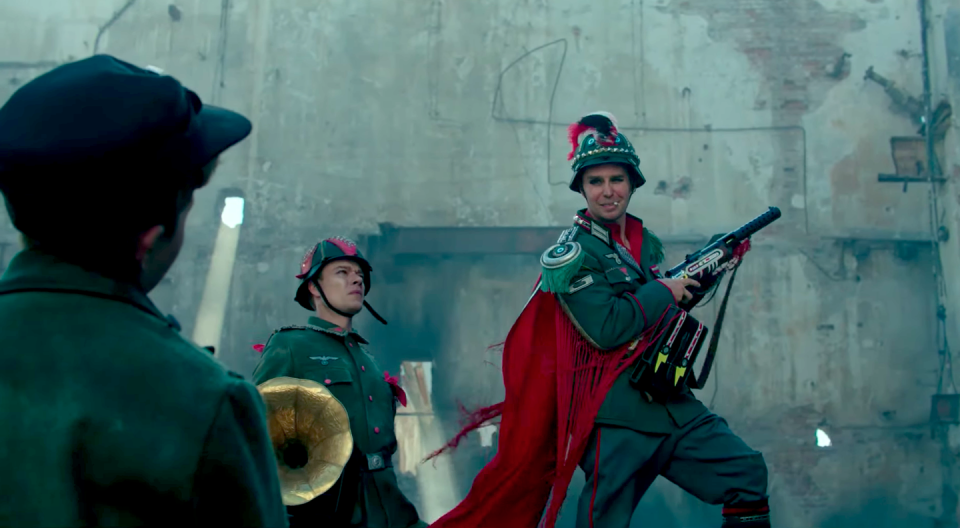
We're meant to laugh at all the other Nazis, as we laugh at Charlie Chaplin, but they are a much bigger part of the Nazi machine than Waititi gives them credit for. I found myself chuckling out loud with the other 29 likely-gentile movie-goers at Sam Rockwell's expertly performed, drink-sodden commander.
But looking back on it, that rests uneasily in my stomach, especially given the character's arc and the ringing in my ears of the recent death-knell statement from one of the highest authorities in the US that 'there are very fine people on both sides' of white supremacy.
The more critical thought you apply, the more unsettling Jojo Rabbit becomes. A Gestapo officer played by Stephen Merchant says: "I wish more of our young boys had your blind fanaticism."
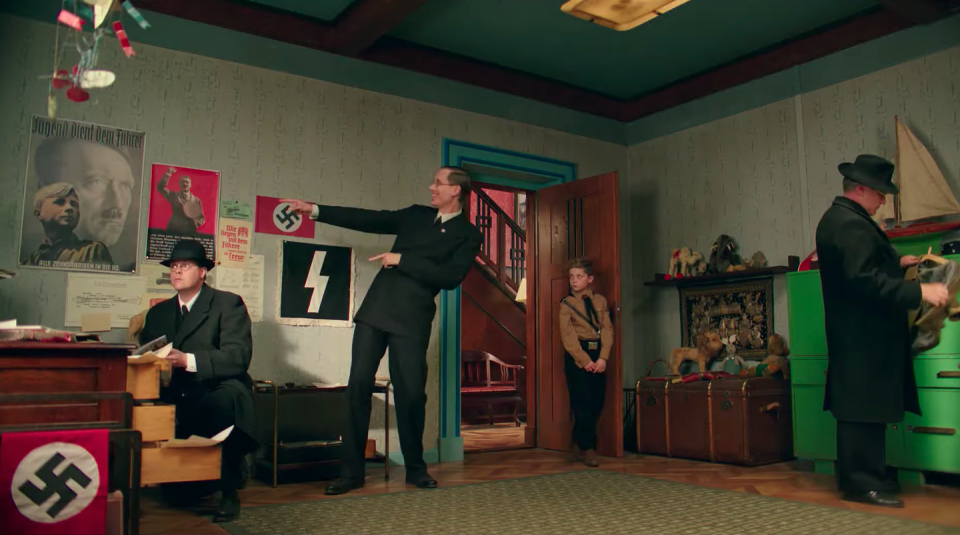
But we live in a world where ten-year-old boys do have blind fanaticism. And in the real world, they don't find a kind Jewish girl named Elsa hiding in their house who teaches them to be human. Instead, they become fanatical teenaged boys who buy automatic weapons and shoot up synagogues.
Does that mean we stop trying to teach them? No. We can help others learn and be angry at the same time, which is where Elsa comes in. Elsa (Thomasin McKenzie) is almost unbelievably patient. She has the time to be, though. She's trapped in a wall, after all.
Through Elsa, Waititi articulates some fundamental and insidious tenets of antisemitism that are being touted even now. She is the real conduit for empathy in the audience, regardless of whether you're Jewish or not.
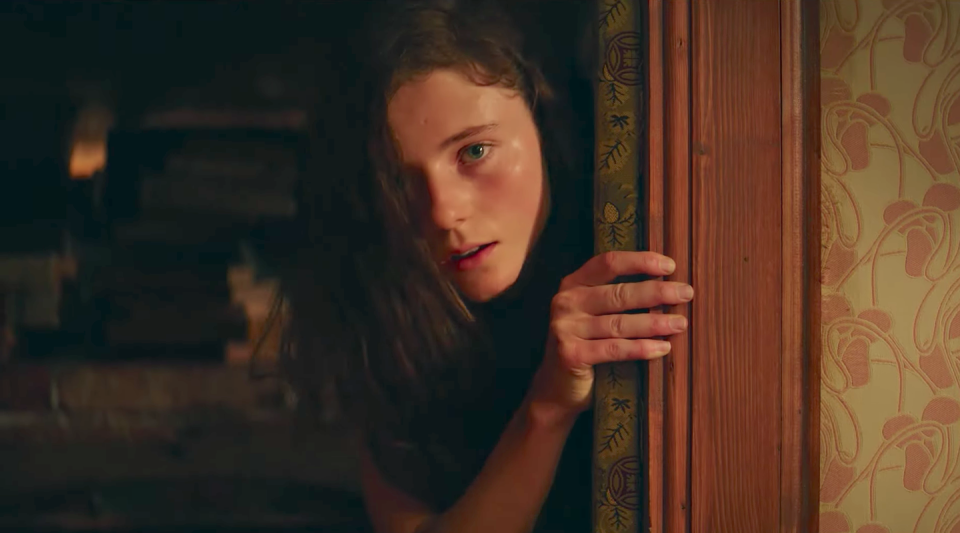
But I am Jewish, so it was impossible not to imagine myself – my grandmother or aunts – in that hidden room in that house. And that is where Jojo Rabbit is most effective: in making you think as if you were Elsa, not Jojo.
The pair develop a friendship, in part because Elsa has enough internal strength to decide that Jojo isn't a Nazi, but "a ten-year-old boy who wants to be part of a club."
She's wrong, of course. He is a Nazi, but he is also capable of change.
Just by being herself she enlightens Jojo. But he is a captive audience – a curious boy with almost no friends and a mother who works (and you know, fights Nazis!). He is looking for belonging, and he goes from finding it in Hitler to finding it with Elsa.
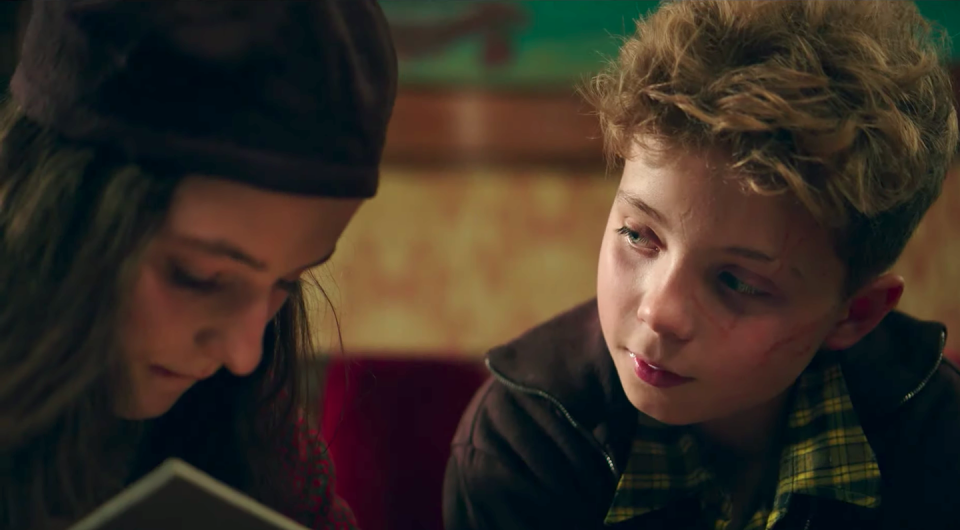
Jews have had to defend our existence, our beliefs, in life-and-death situations. Waititi knows this, so instead of Elsa fighting to prove she deserves to be treated like a human being, she goes along with the joke. Because – I think Waititi would agree – it is laughable! The fact that we, now or ever, blame a certain group of human beings for our woes (and think they have horns) is so ludicrous it beggars belief.
However, the results of that blame are far from funny. Waititi knows this too and rightfully in this movie we never go to the death camps. We never see the piles of shoes, the messy reality of the consequences of this blame. The blame is not the story Jojo Rabbit is telling, and that's okay.
It is telling Elsa's story, and Jojo's story. One young Jewish woman's and one ten-year-old German boy's. And it felt a little like my story. I've never had to explain that I don't have literal horns, but I've had to do a lot of explaining. I've been angry and scared and grateful and indignant and hopeful, like Elsa. I've felt betrayed by my country, like Elsa.
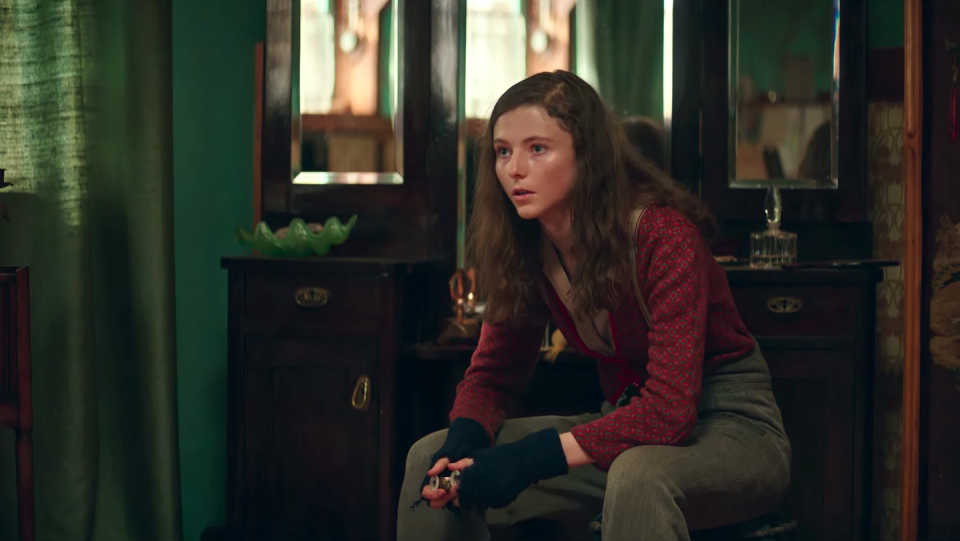
If anyone – gentile or otherwise – comes out of Jojo Rabbit relating to those feelings, then Waititi's film is, on balance, a success.
Jojo Rabbit is also effective at doing what Waititi presumably set out to do: make people think critically about what it is that informs our beliefs. And, you know, laugh while we do it.
Jews, like every other group of everyone else, are not a monolith and there will be countless people who disagree with me. But I am just one Jew and, though it is difficult and divisive and discomforting, part of my heart is with Jojo Rabbit.
Jojo Rabbit is in cinemas now.
Digital Spy now has a newsletter – sign up to get it sent straight to your inbox.
Want up-to-the-minute entertainment news and features? Just hit 'Like' on our Digital Spy Facebook page and 'Follow' on our @digitalspy Instagram and Twitter accounts.
You Might Also Like

